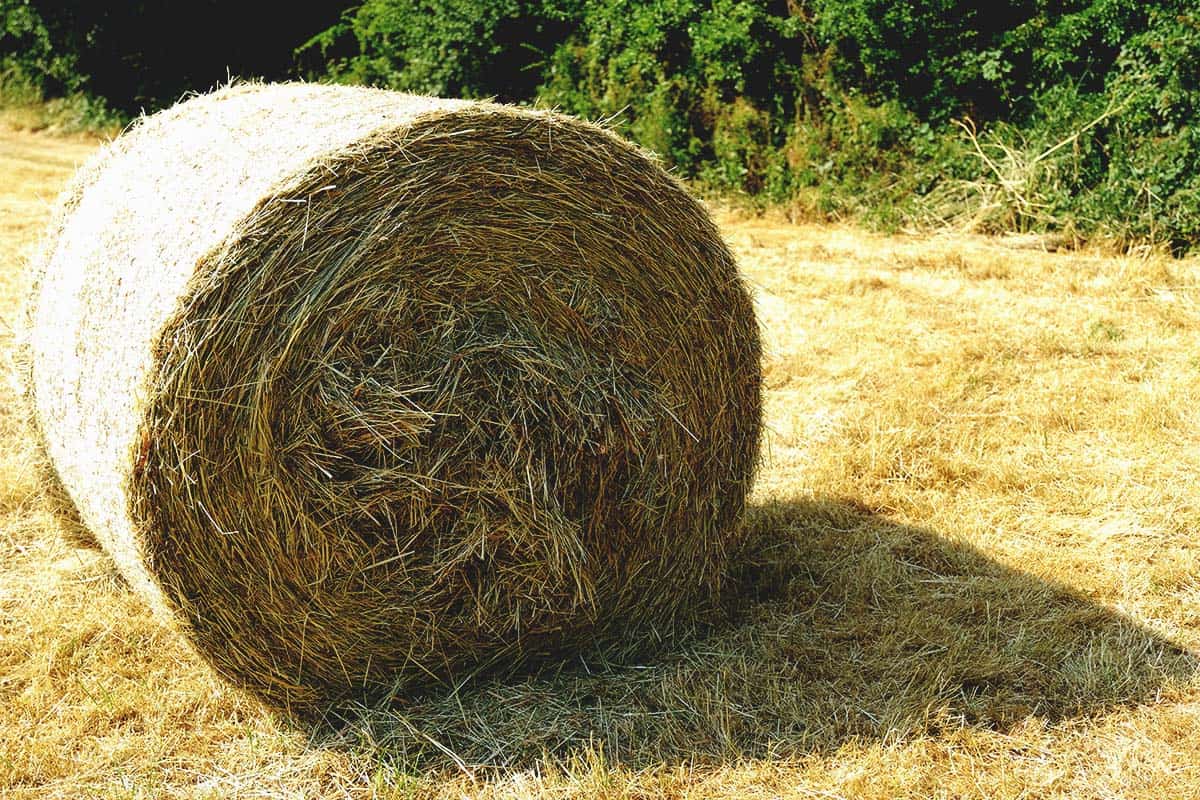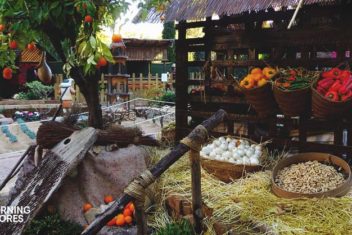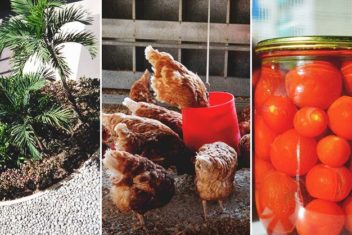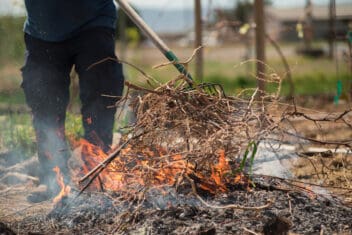There’s nothing worse than observing a declining supply of hay in your loft. Especially when you’re only halfway through winter.
It happens to us all. We miscalculate or misjudge the hay we’ve collected and stored for our beloved livestock.
Whether your hay stock is running low, or the quality of hay you have has proven to be subpar, try not to let mid-winter hay panic set in.
In this article, we’ll take a look at different places to find hay in the middle of winter. As a cautionary note, you will probably end up paying a lot more for the hay you need in the offseason than you would during the summer months.
Places Where You May Find Hay
First off, you may be in luck because there may still be some hay for sale, yes, even during the cold winter months.
1. Auctions
Your local coop or auction house may have weekly hay auctions. Check the schedules and call around to see if there’s a certain day of the week for auctions and be ready to bid for your hay.
Be cautious when purchasing hay at an auction as the best bales may be stacked on the outside of the trailer, and crummy ones may be at the center for appearance sake.
Auctions are an easy way to find hay when you’re in a pinch (if you have them locally) but it can also be a risky decision as you don’t always know exactly what you are getting until you get home and break open a bale.
2. Classifieds

Good ‘ol newspaper classifieds still have listings for hay from time to time, so if you’ve got a subscription, start watching the paper for hay listings.
No newspaper? Well, there’s always Craigslist. You are almost always going to find hay for sale on craigslist. Unfortunately, it may not be nearby, but if you’re in a bind, you might need to be ok with a little travel.
Again, the price of hay goes up on Craigslist during the winter months, or even during years of heavy rainfall or drought. Either way, the critters need their feed, so you might need to bite the bullet and shell out some serious ching for them in times of need.
No hay listings? Create a wanted ad for hay and let the hay find you!
3. Facebook
If you’re on Facebook, you can find local farming and homesteading groups to join. Usually, these groups are open to anyone interested in animal husbandry and a simple post asking around for hay may yield some fantastic results.
Even if no one has hay for sale, they may be able to point you in the right direction or offer a few bales to help you out in a time of need.
4. Forums
The internet is full of forums dedicated to certain animals, breeds, and hobbies. You can find regional forums to join where you can ask for hay leads. You may even find some hay groups that are specifically created as a hay exchange site.
5. Hay Sale Websites
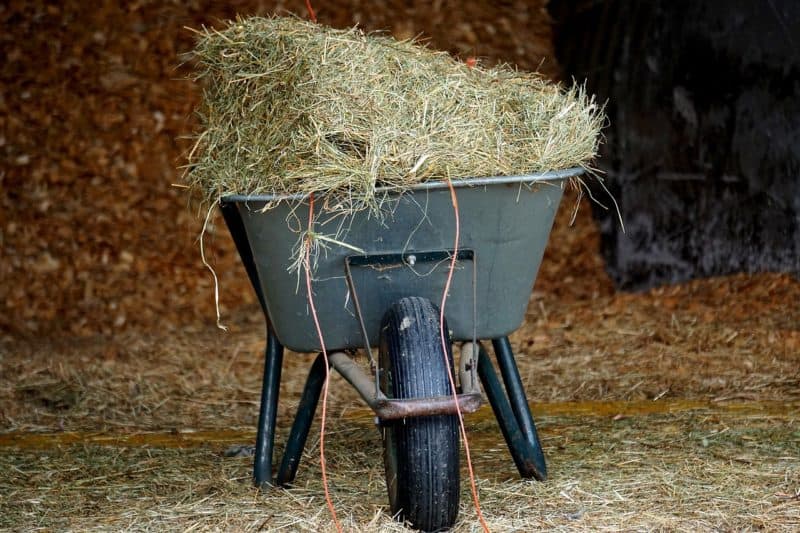
If you google, “Hay for sale near me” you may have some luck finding local farms that sell hay and have their own websites. On the other hand, hay exchange (buy and sell) websites are beginning to pop up. Allhay.com, for example, allows you to search by region.
In a short search, I was able to find a website that offered hay, at a premium, nearby with delivery. I’m happy to know that if I needed it, I could go check out the hay and order it to be delivered. It certainly gave me peace of mind.
You could even find hay on Amazon, but it will be at a premium.
People You Could Ask
If all of the above methods have given zero results, you can start asking around, in-person, and follow up on hot hay leads. Here are some options:
1. Feed Mills
If you take a few moments the next time you’re at your favorite feed mill, you can ask the agent if he or she knows of any local hay growers that have hay for sale.
The mill is a farmer’s hotspot and lots of chit-chat goes on while loading feed. Your local agent may know exactly where to point you.
2. Ag Feed Stores and Coops

Stores like Tractor Supply Co. and Fleet Farm often have packaged hay available, in differing mixes and sizes. You can usually expect to pay top dollar (and then some) for these bales of hay. But, if you’re really in a pickle, it may be a way to bridge the gap until you can get your hands on some reasonably priced hay nearby.
Coop workers are another group of people to check in with. They may know of someone who has a surplus amount of hay available. So don’t forget to ask before buying expensive packaged hay.
Agriculture stores and coops often have bulletin boards for people to post…well, anything. You may have some luck looking for hay here or you may find your next Livestock Guardian pup…stay focused!
3. Neighbors with Livestock
This last method is iffy. It all depends on how well you know your neighbors and local farmers. But if you’re really in a tight spot, you may need to consider reaching out to others with livestock to see if they have extra hay that they’d be willing to part with.
If you have to go this route, offer to pay top dollar and even repay them ten-fold with more hay once you find some. The last thing you want to do is create tension with a neighbor over hay stores.
Extend Your Current Hay Supply
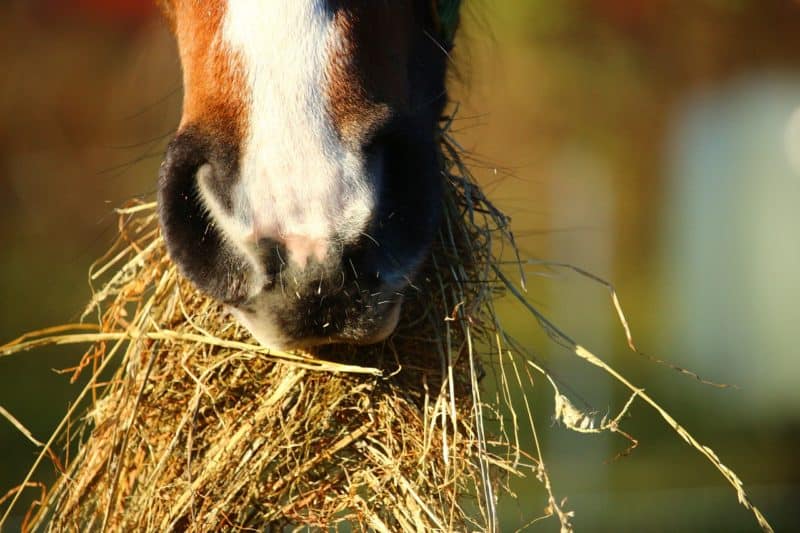
Feeding grain in addition to your hay may help the hay last longer. There are also products available that tout themselves as hay extenders. Look for these at your local mill and feed stores.
Depending upon the animal, you can add a supplemental feed, like beet pulp for horses, to help them keep the weight on during the winter when hay is low. Many use this for hard keepers in the cold months.
Prevent the Same Problem in the Future
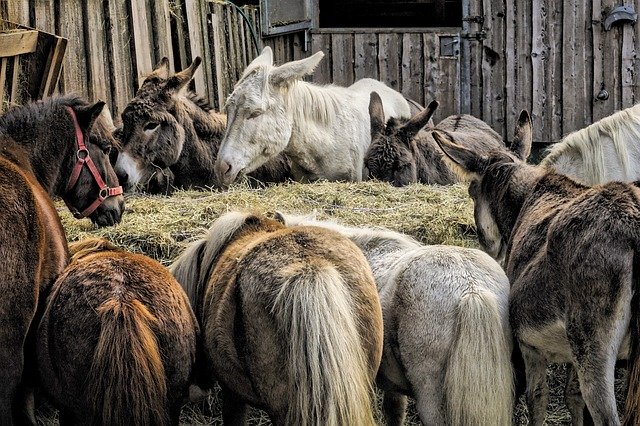
Running out of hay in the middle of winter is a stressful situation to find yourself in. Your animals are counting on you to keep them fed, warm, and healthy.
So, as soon as your stores look low, take a moment to calculate what you will need to get your animals through the winter. If your stores aren’t going to cut it, start looking as soon as possible.
If you’re a new farmer, it’s understandable to make the mistake of underestimating your animals’ feed consumption. But if it happens year after year, it’s time to sit down and talk to someone who knows about animal nutrition, like a coop nutritionist. They will able to help you plan for winter, and prevent the mid-winter panic from happening again.
